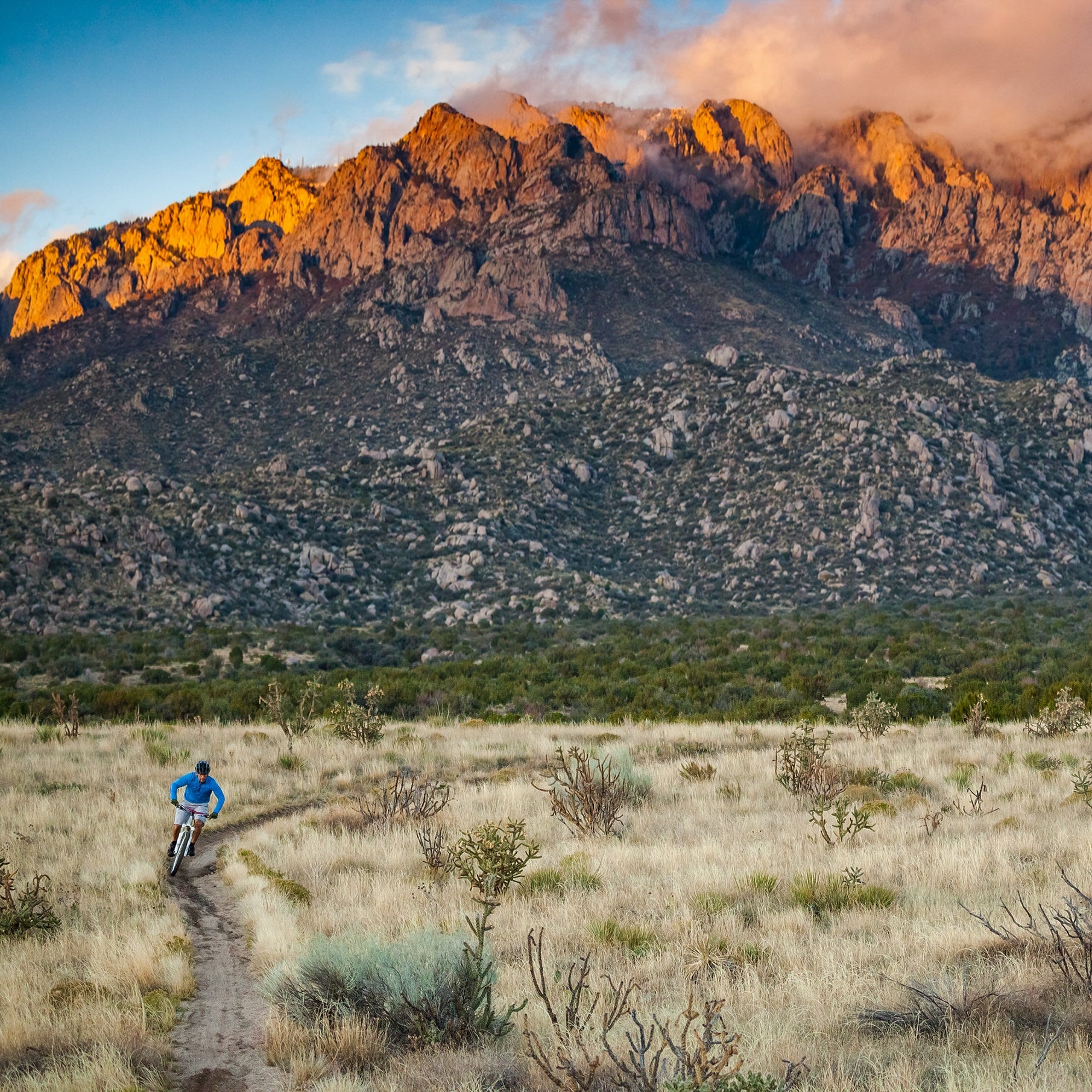On Wednesday, July 13, Senators Mike Lee (R-Utah) and Orrin Hatch (R-Utah) that, if passed, would reverse the nationwide ban on mountain biking in wilderness areas in favor of local decision making and permit the use of “small-scale motorized equipment or method of mechanical transport” in the maintenance of wilderness trails. It’s a big deal.
What's the Point of the Bill?
Mountain bikers are banned from all wilderness areas. And local land managers (think: the officials in charge of U.S.��Forest Service, National Park Service, Bureau of Land Management, or Fish and Wildlife Service headed lands), don't have the ability to grant exemptions. So bikes are banned. Period.��
This bill aims to give these on-the-ground officials the right to permit mountain biking. Practically speaking, managers would have two years to determine if bikes are allowed. If they fail to make a decision��within the time frame, bikes would automatically be permitted.��
The bill would also��allow the use of motorized tools and mechanical transport (think: chainsaws and wheelbarrows) in the��maintenance of wilderness trails, something that is not currently allowed.
Why You Should Support This Bill
If you’re a mountain biker, the appeal is obvious: access to miles of previously off-limits singletrack. It’s certainly appealing. According to a , 96 percent of cyclists believe that at least some wilderness areas��should be open to bikes. Even if you're not a diehard cyclist, you may think that giving local land managers more discretion on this topic is a good idea, too. After all, what works in quiet Santa Fe, New Mexico, may not work in busy Boulder, Colorado.
…And Why You Might Not Want To
Not everyone has such a favorable view of the legislation. There are fears that the bill could create a rift between cyclists and the environmental movement with the inadvertent effect of empowering pro-extraction interests. �����ԹϺ���’s Grayson Schaffer when 275,000 acres among��the Boulder and White Cloud Mountains were signed into federal wilderness:
Most dangerous of all is that the fragile coalition of recreation interests that’s critical to wilderness advocacy will have to spend time and political capital shoring up its own ranks instead of actually fighting for conservation. If hikers and bikers are at each other’s throats, the only interest group that will benefit is the one that would prefer extraction and development.
��
These fears are undoubtedly exacerbated by the bill’s sponsors: two Republican senators with (Lee and Hatch both have a lifetime score of 10 percent, compared to a Senate average of 45 percent.). Recent headlines circulating about the new Republican platform probably aren't��alleviating these concerns: “.”
And many outdoor advocates, including Schaffer, believe that mountain bikes—not to mention motorized tools—have no place in wilderness. In February, opposing the effort to introduce bikes into wilderness areas. ��(If you're looking for a primer on the��meaning of wilderness, Kenneth Brower's “Leave Wilderness Alone” is a good place to start.)
Or��you may simply believe that mountain bikers don't belong on trails, regardless of wilderness��designation.��
OK. So It's Not So Simple. Why Were Bikes Banned in the First Place?
It’s complicated. When the 1964 Wilderness Act was signed, it stipulated that “there shall be no temporary road, no use of motor vehicles, motorized equipment or motorboats, no landing of aircraft, no other form of mechanical transport…” At the time, mountain biking as we know it didn’t exist and mechanical transport was defined to mean a cart, sled, or any other vehicle “powered by a non-living power source.” As the sport began to emerge, the Forest Service updated its rules, with the most influential change coming in 1984, when the agency banned the “possessing or using a hang glider or bicycle.” Note, however, that��wheelbarrows did exist in 1964.
That Happened a Long Time Ago. Why Are Cyclists Still Upset?
Because lots of great trails are on wilderness land. But it’s more nuanced than that. When new wilderness areas are designated, cyclists lose access to trails they’ve long enjoyed—and often helped maintain, build, and protect (see��Schaffer's above piece). That’s frustrating, especially if you're someone who believes in the importance of wilderness and also loves to ride a bike. Cyclists are also frustrated by the arguments used to��exclude them��from wilderness areas. Critics claim cycling is damaging to trails, all about speed vs. the enjoyment of the outdoors, and is simply an activity that doesn’t belong in the slower-paced world of wilderness. In turn, cyclists cite studies showing the sport to be low-impact (and far less damaging than horseback riding) and argue that everyone should have the right to enjoy wilderness.
Give Me Some Background. How'd This Bill Get Introduced?
You can thank (or blame) the , a new cycling access group started with the stated goal of battling “needless access restrictions.” The organization was formed after a five-year campaign to reopen the Pacific Crest Trail to mountain bikers failed. Since then, they’ve raised more than $120,000 and have put that money toward lobbying for this bill.
Want to Know More?
We suggest starting with these stories. Then write to Congress!
���� ��•���� ��The New Golden Rule of Playing �����ԹϺ���: Place First
���� ��•���� ��
���� ��•���� ��
��


